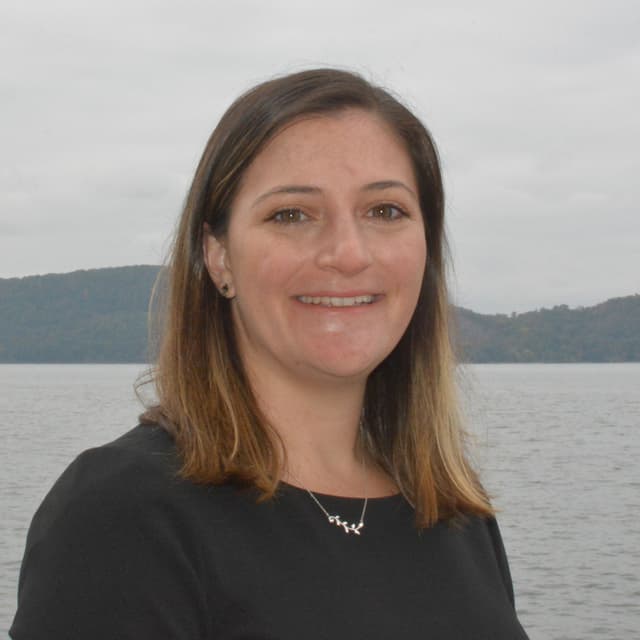The Hudson is used extensively for shipping, including potentially hazardous cargo such as heating oil, crude oil, and other petroleum products. Spills are a real risk. In December 2012, an oil tanker ran aground near Albany with 12 million gallons of crude oil on board. While the ship’s double hull prevented a spill, it exposed the inadequacy of spill response capabilities for such a massive potential disaster. In April 2005, a barge carrying 3.1 million gallons of gasoline ruptured near New Hamburg, spilling gasoline into the Hudson. Spills damage vital Hudson River habitats, and could contaminate drinking water for the 100,000 people who rely on the Hudson as their water source.
Anchorages
Commercial vessels anchored in the water can present hazards to public safety and boating, pose spill risks, cause noise and light pollution, threaten submerged cables, damage critical habitat areas, and affect waterfront tourism.
There are currently seven anchorage grounds in the Hudson River where large commercial vessels are allowed to anchor: three near Upper Manhattan, three near Yonkers, and one west of Hyde Park.
Advocates, communities, and government agencies all have significant concerns over the risks that anchored vessels pose to endangered sturgeon, community waterfront plans, and drinking water sources. Riverkeeper will ensure that the public’s concerns are fully considered in any future anchoring regulations, policies or legislation.

Spill preparedness and prevention
The Hudson is used extensively for shipping, including potentially hazardous cargo such as heating oil, crude oil, and other petroleum products. Spills are a real risk. In December 2012, an oil tanker ran aground near Albany with 12 million gallons of crude oil on board. While the ship’s double hull prevented a spill, it exposed the inadequacy of spill response capabilities for such a massive potential disaster. In April 2005, a barge carrying 3.1 million gallons of gasoline ruptured near New Hamburg, spilling gasoline into the Hudson. Spills damage vital Hudson River habitats, and could contaminate drinking water for the 100,000 people who rely on the Hudson as their water source.
Bomb trains
Railroads hug large stretches of the Hudson and Mohawk Rivers, and other tributaries. Accidents from trains carrying toxic and high-hazard flammable materials put the river and its communities at risk. The country has witnessed several massive explosions after derailments of the most dangerous of these trains, nearly mile-long “unit” trains carrying volatile Bakken crude oil in outdated and inadequate cars more suited for transporting non-hazardous products.
The catastrophic train accident that occurred in East Palestine, Ohio in 2023 is a reminder of the risks faced in the Hudson Valley and in New York State from freight trains carrying a range of products. Both the Hudson and Mohawk Rivers have railroad tracks that hug banks for hundreds of miles. These are major routes for the transport of hazardous materials like oil and chemicals.
A derailment like the one in Ohio would be a disaster in our region, since spill response, including containment and recovery, to a similar accident is near impossible in a moving water system like the tidal Hudson. Derailments along the Mohawk River in 2023 and Hoosic River in 2024 show how real the threat is. While the Mohawk derailment involved empty tanker cars, the Hoosic derailment spilled plastic pellets that washed up some 60 miles away in the Hudson River.










